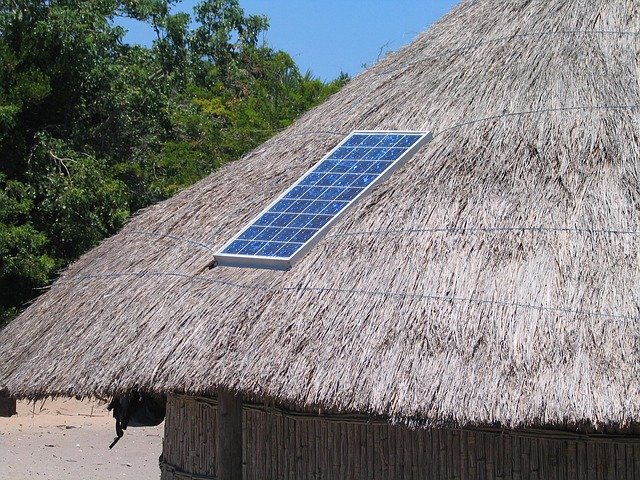
Humans have been using fossil fuels and natural gas since the early 1900s. We understood that these resources weren’t going to last forever. So, we began to increase our use of renewable energies during of the middle of the century. At that time, we began to understand that this would be one of the most important advantages of solar energy.
Today, only “about 17% of total U.S. electricity generation in 2019” came from renewable energy sources,” says the Energy Information Administration. At this rate, we will deplete our supply of fossil fuels in 30 to 40 years. For that reason, campaigns around the world are encouraging consumers to transition to solar energy. Unlike fossil fuels, the sun’s rays are limitless.
What are Other Advantages of Solar Energy?
There are benefits to going solar for every person, business, city, and country. Not only will it benefit one personally, but also other consumers around the globe. Here are the top six reasons for you to go solar.
Environmentally Friendly
We’ve been using fossil fuels for over a century; however, we didn’t finalize regulations for power plants until 2011. That lead to irreversible damage to our environment. In other words, our once-clean, healthy air is now contaminated with heavy metals and radioactive materials. What are the advantages of solar energy? Significantly, one of them is conserving what’s left of our healthy environment.
There are power plants in almost every state across the country. Regulations (the Clean Air Act) have been in place for over 30 years. According to the Environmental Protective Agency, “some power plants still do not control emissions of toxic pollutants, even though pollution control technology is widely available.”
On the other hand, a solar system produces no air, water, or noise pollution. Many experts perceive those as separate advantages of solar energy. Furthermore, plants that manufacture solar panels have a smaller carbon footprint than fossil fuel power plants.
Unlimited, Accessible Energy
As we deplete the world’s oil supply, we naturally look more to other energy sources to rely on. According to College Physics, “The U.S., with 4.5% of the world’s population, consumes 24% of the world’s oil production per year; 66% of that oil is imported!”
We don’t have to import sunlight from another country. Solar is available everywhere the sun shines on the planet. The sun makes energy available in remote areas where the electrical grid may not be reliable or even available.
Better Job Prospects
Short and long-term hazards come with working in a fossil fuel power plant. Short-term safety concerns include exposure to toxic gas leaks and hot steam pipes. Irresponsible or careless management of a powerplant is dangerous for employees, as well.
On the other hand, jobs in the renewable energy sector are much safer and pay well. Solar energy job availability increases year after year, too.
The Bureau of Labor Statistics explains “Employment of solar photovoltaic (PV) installers is projected to grow 51 percent from 2019 to 2029, much faster than the average for all occupations. The continued expansion and adoption of solar PV systems will result in excellent job opportunities particularly for those who complete training courses on solar panel installation.”
Increased Home/Property Value
Solar panels are sleek and aesthetic. They also render traditional energy resources useless. Instead of relying on a company to deliver their energy, solar consumers are self-reliant. This gives them control over their electricity access.
Say, for example, a power outage occurs in your neighborhood. While your neighbors are lighting candles, you may switch on your battery and continue your day with electricity.
In other words, a solar system is an upgrade. For that reason, the U.S. Department of Energy says a solar system increases a home’s value by about $15,000 on average. This tends to be one of the lesser-known advantages of solar energy.
Spend Less Money
This is a good time, in general, to consider converting to solar. The technology isn’t brand new; several improvements have made them even more efficient. Despite these positive developments, the price of the panels remains less expensive than they were several years ago. The labor cost is also less expensive.
Once the solar system is installed, it’s producing your electricity for free. That drastically increases your energy bill. With that in mind, many people consider financing their solar system, without having to increase their monthly energy bill.
Moreover, should your solar system produce more electricity than you need, utility companies frequently buy the excess from you. This is called net metering.
Lastly, state and local governments offer incentives for homeowners to go solar. The federal government offers a tax break of up to 30 percent. States’ tax credits vary.
“California, blessed with abundant sunshine and plagued by high electric rates and an overtaxed grid, was the first state to offer generous renewable-energy incentives for homes and businesses,” says International Association of Certified Home Inspectors. Today, all 50 states offer varying tax breaks.
Quality, Efficient Panels
The benefits of solar power are also in the panels, themselves. Today, new solar technology captures more sun rays. Advanced solar systems can even restart the grid if necessary. They’re durable and long-lasting and rarely need maintenance.
Solar systems last from 25-35 years. It’s basically a set-it-and-forget-it way of consuming clean, cost-effective energy. Now’s the time to .